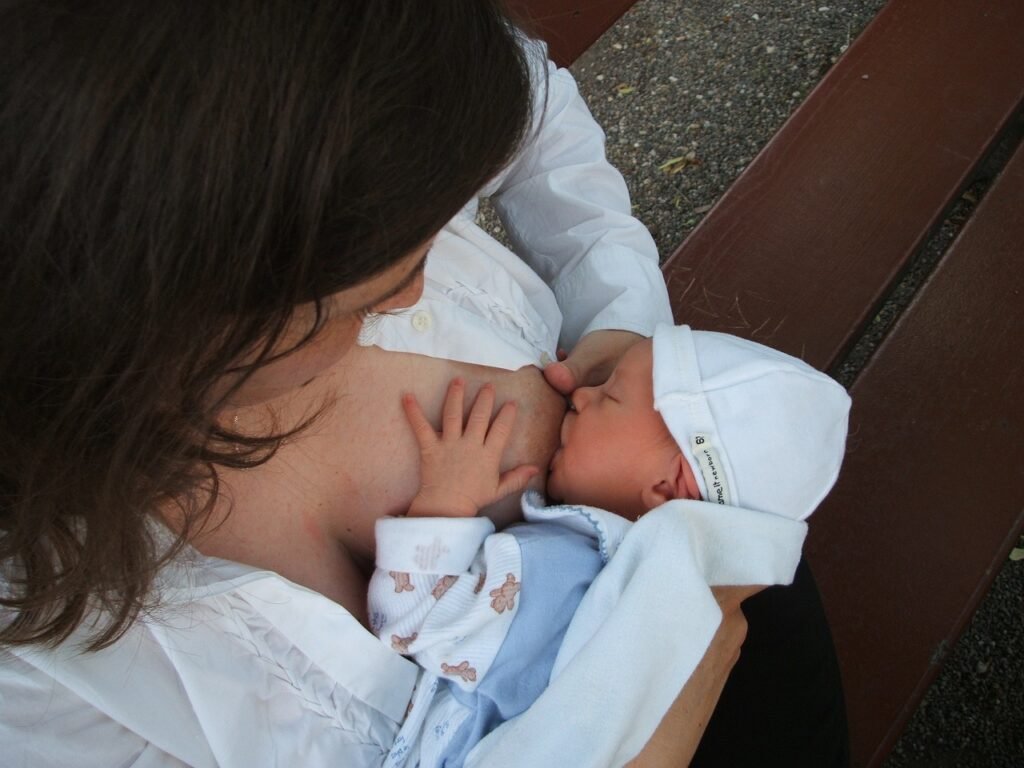Proper Nutrition for the Nursing Mother: A Comprehensive Guide to Nourishing Both Mother and Baby

The journey of motherhood involves numerous decisions, and one of the most crucial aspects is ensuring proper nutrition during the breastfeeding period. This comprehensive guide aims to address common queries, dispel myths, and provide detailed insights into the intricate relationship between a nursing mother’s diet and her overall well-being, as well as the health of the breastfeeding infant.
The Significance of Breastfeeding: Breastfeeding stands as a cornerstone for the health and development of an infant, offering a myriad of benefits that extend beyond mere nourishment. It not only provides the essential nutrients required for the baby’s growth but also imparts immunity against infections and diseases in both the short and long term. Understanding the intricacies of breast milk production sheds light on the importance of a well-balanced maternal diet.
Physiology of Breast Milk Production: Breast milk is synthesized in specialized cells called lactocytes, residing within the mammary glands. These lactocytes, nestled within the breast’s outer shell of nadia, store and release milk through a network of tubes leading towards the nipple. The proximity of small blood capillaries to lactocytes facilitates the transfer of substances from the mother’s bloodstream into the breast milk, ensuring a direct link between maternal nutrition and the composition of breast milk.
Balanced Nutrition for Nursing Mothers: A nursing mother’s daily menu should mirror that of the general population, emphasizing a balanced and varied intake of essential nutrients. This includes carbohydrates, fats, proteins, as well as vitamins and minerals such as iron, calcium, magnesium, and zinc. The goal is not only to maintain the mother’s health but also to expose the infant to a diverse array of flavors through breast milk, potentially influencing their later acceptance of a variety of solid foods.
Recommended Foods: To meet the nutritional demands of breastfeeding, incorporating foods rich in essential nutrients is paramount. Examples of such foods include whole grains (oats, bulgur, buckwheat, and wheat), fruits, vegetables, protein-rich sources (milk, eggs, legumes, turkey, lean beef, chicken, and fish), and those abundant in essential fatty acids (avocado, tahini, olive oil, walnuts, Brazil nuts, seaweed, flax seeds, and chia). The Mediterranean diet, renowned for its health benefits, serves as a model, promoting the consumption of plant-based foods, moderate dairy and lean meat intake, and limiting processed and high-sodium foods.
Caloric Intake and Energy Requirements: Given the energy expenditure associated with breastfeeding, a nursing mother of normal weight should aim for a daily caloric intake ranging between 1,500 and 1,800 calories. The specific range may vary based on the mother’s weight at the beginning, during, and after pregnancy. Striking the right balance ensures the optimal health of both the mother and the growing infant.
Foods to Minimize: Certain foods and beverages should be approached with caution during breastfeeding. These include high-calorie processed foods, those high in sugar, salt, and unhealthy fats, such as trans fats. Moderate intake of caffeine (up to 300 mg per day) is advised, with attention to its potential effects on the nursing infant. Alcohol consumption should be minimized, as it passes swiftly from the mother’s blood into the milk, potentially affecting the baby’s motor development. Artificial sweeteners should be used sparingly due to unclear effects on the nursing baby.
Diet and Gas in the Baby: Contrary to common beliefs, there is no conclusive evidence linking a nursing mother’s diet to gas in the baby. Gas-inducing breakdown products, such as those found in certain legumes and cruciferous vegetables, are formed in the digestive system and do not reach the breast milk.
Myths and Facts: Dispelling prevalent myths is crucial for a clear understanding of the relationship between a mother’s diet and breastfeeding. The quantity of food a mother consumes does not directly correlate with milk production, with the primary determinant being the baby’s nursing frequency. Unsubstantiated claims about the efficacy of certain substances, such as fennel, black beer, and almonds, in increasing milk production need to be acknowledged as myths. The body produces milk in response to the baby’s demand, and creating a calm atmosphere with proper feeding techniques contributes more significantly to successful breastfeeding.
Supplements: While a balanced diet ideally provides all necessary vitamins and minerals, certain circumstances may warrant the consideration of supplements. Vegetarians, vegans, or those with a daily intake below 1,800-1,500 calories may need multivitamin supplements. Vitamin D supplementation may be necessary for those avoiding sunlight exposure. Additionally, an iron supplement is recommended during the first six weeks of breastfeeding, especially if there is a known deficiency.
Effect of Veganism and Vegetarianism: Maintaining a balanced and varied diet is particularly vital for vegan and vegetarian nursing mothers to prevent deficiencies in essential nutrients. Regular intake of vitamin B12 supplements is essential for these dietary lifestyles, given its exclusive presence in animal products.
Effect on Milk Composition: The composition of breast milk comprises water, proteins, carbohydrates, fats, cholesterol, and minerals like iron and calcium. While the majority of these components are unaffected by the mother’s diet, the amount of fatty acids, such as omega-3, can be influenced. Consumption of foods containing omega-3 or taking supplements is recommended. Essential minerals like selenium, iodine, manganese, and fluorine can be obtained through specific foods. Vitamins B12, B6, D, and A are influenced by the mother’s diet, and their levels in milk may decrease with maternal deficiencies.
Weight Loss and Calcium Consumption: Breastfeeding may contribute to gradual weight loss in the initial months postpartum. However, extreme diets and rapid weight loss (over two kg per month after the first month of breastfeeding) are discouraged due to the potential for nutritional deficiencies. Calcium consumption during breastfeeding does not have a specified recommendation; however, a daily intake of 1,000 mg is generally advised. Incorporating calcium-rich foods into the diet is essential to prevent depletion from the mother’s bones and teeth.
Baby Stomach Ache: Colic, defined as painful contractions of the intestines, affects 20-30% of infants, both breastfed and non-breastfed. The reasons for colic remain unclear, with one possibility being the immaturity of the digestive system. Limited evidence exists to connect a mother’s diet to infant colic. Approximately 20-30% of infants experience colic, and it may be linked to the immature digestive system.
Navigating the realms of proper nutrition during breastfeeding involves understanding the nuanced relationship between a mother’s diet, milk production, and the health of the breastfeeding infant. By embracing a balanced and varied diet, nursing mothers can optimize their own well-being while providing essential nutrients to their growing babies through breast milk.
Disclaimer: This guide provides general information and should not replace professional medical advice. Consult with a healthcare provider or a registered dietitian for personalized guidance tailored to your specific circumstances. The information presented here is not intended as a substitute for professional medical advice or diagnosis.





